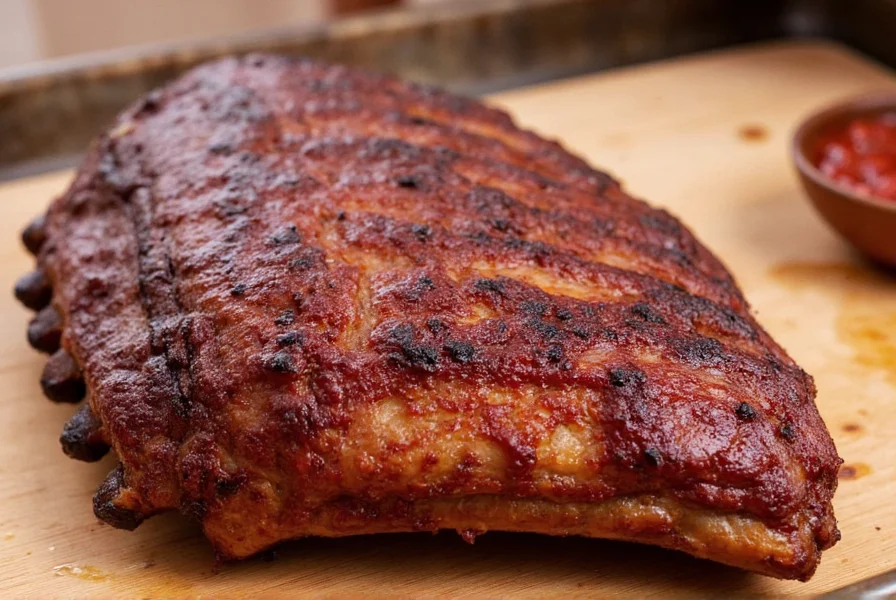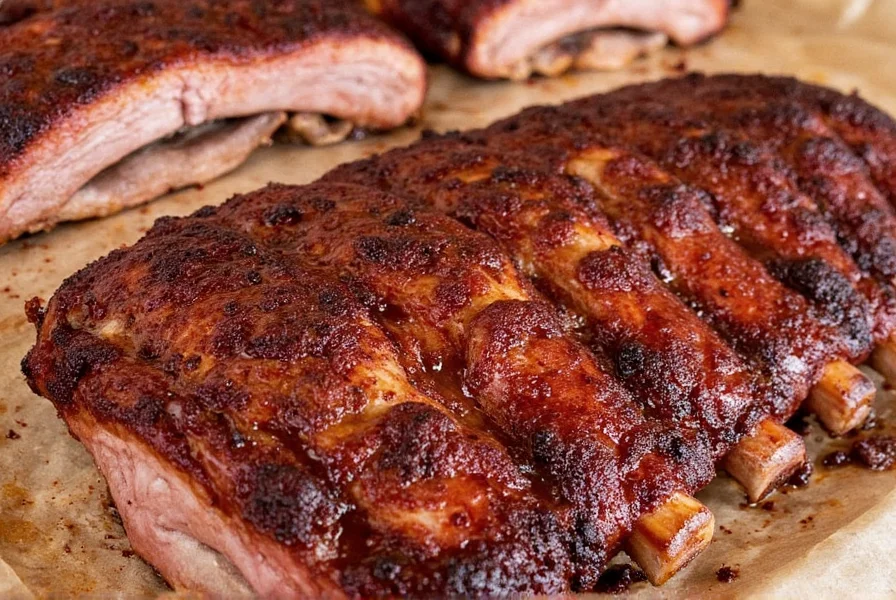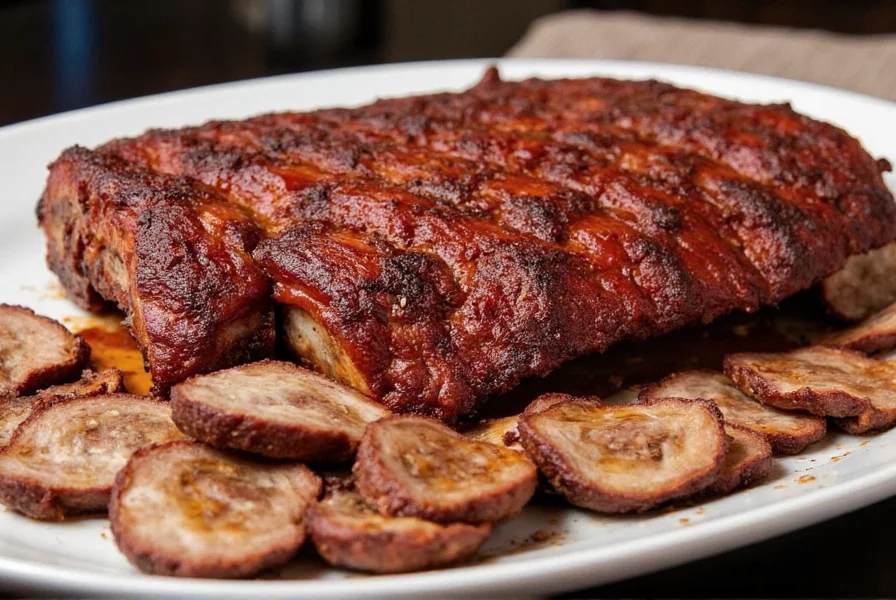How to Make Smoked St. Louis Style Ribs: A BBQ Lover’s Dream Recipe
Smoked St. Louis Style Ribs are the holy grail of backyard barbecue — rich, smoky, and fall-off-the-bone tender. Whether you're a seasoned pitmaster or just starting out, this guide will walk you through everything you need to know to make restaurant-quality ribs right in your own backyard. We’ll dive into the meaty details, share some pro tips, and even compare different rubs and smokers to help you find your perfect setup.
Table of Contents
- What Are St. Louis Style Ribs?
- Why Smoke Them?
- Equipment Needed for Smoking Ribs
- Ingredients List
- Step-by-Step Recipe Guide
- Rubs Compared: Which One Wins?
- Wood Chips Chart: Picking Your Perfect Flavor Pairing
- Buying Guide: Choosing the Best Ingredients and Equipment
- Pro Tips for Perfect Ribs Every Time
- Serving Ideas & Sides That Shine
- Conclusion
What Are St. Louis Style Ribs?
If you’ve ever seen a beautiful rectangular rack of pork ribs with the sternum bone removed and the rib tips trimmed off, that’s a St. Louis Style Rack. These ribs come from the belly side of the hog and offer a great balance between meatiness and chew. Compared to baby back ribs, they’re flatter, more uniform, and have more fat — which means more flavor when smoked low and slow.
Why Smoke Them?
While you can bake or grill ribs, nothing beats the depth of flavor that smoking adds. Low-and-slow cooking breaks down collagen, rendering the ribs tender while absorbing aromatic smoke. The result? Meat that practically slides off the bone, kissed with the richness of hickory, applewood, or whichever wood you choose.
Equipment Needed for Smoking Ribs
You don’t need a $5,000 smoker to make killer ribs — but having the right tools helps. Here's what you'll want to get started:
- Offset smoker, pellet smoker, or even a kettle grill with a smoke box
- Wire rack or cooling rack for elevating the ribs
- Digital meat thermometer
- Rib rack (optional but useful for space-saving)
- Heavy-duty aluminum foil
- Pan or tray for collecting drippings
Ingredients List
- 2 racks of St. Louis Style pork ribs
- 1 cup dry rub (store-bought or homemade)
- Apple cider vinegar or water (for spritzing)
- Your favorite BBQ sauce (optional)
- Wood chips or chunks (apple, cherry, hickory, etc.)
Step-by-Step Recipe Guide
- Trim the Ribs: Remove the silver skin from the bone side. Use a butter knife to lift it, then pull it off with a paper towel.
- Season Generously: Apply a dry rub liberally on both sides. Let them rest in the fridge for at least an hour, or overnight for deeper flavor.
- Set Up the Smoker: Preheat to 225°F. Use a mix of indirect heat and consistent smoke flow.
- Smoke Time: Place the ribs meat-side up and smoke for about 3 hours.
- The Wrap: After 3 hours, wrap each rack in foil with a splash of apple juice or vinegar. Return to the smoker for another 2 hours.
- Glaze & Finish: Unwrap, brush with sauce if desired, and smoke uncovered for another 30 minutes until caramelized and sticky.
Rubs Compared: Which One Wins?
| Rub Type | Flavor Profile | Best For |
|---|---|---|
| Classic KC Rub | Brown sugar, paprika, garlic, onion | Sweet and smoky, ideal for beginners |
| Texas Dry Rub | Cayenne, black pepper, chili powder | Spicy kick, best for bold palates |
| Carolina Gold | Mustard base, turmeric, celery salt | Mild, tangy, great with vinegar sauces |
| Homemade Blend | Customizable — add coffee or cocoa for depth | Experienced cooks looking for complexity |
Wood Chips Chart: Picking Your Perfect Flavor Pairing
| Wood Type | Flavor Notes | Pair With |
|---|---|---|
| Hickory | Strong, bacon-like flavor | Classic American BBQ lovers |
| Apple | Sweet, mild, fruity | Beginners or lighter meats |
| Cherry | Subtle sweetness, deep red color | All-purpose; enhances appearance |
| Mesquite | Intense, earthy, slightly bitter | Tex-Mex or bold flavor seekers |

Buying Guide: Choosing the Best Ingredients and Equipment
Whether you’re shopping for ribs or picking the right smoker, here’s how to make informed decisions:
Choosing Ribs
- Freshness: Look for pinkish-red color, no strong odors
- Marbling: Even fat distribution ensures juiciness
- Size: Aim for 2–3 lb racks per person
Smokers
- Char-Griller Akorn: Excellent temperature control, great for small batches
- Rec Tec RT700: Pellet-powered, precise temp management, Wi-Fi capable
- Masterbuilt Electric: Great starter option, easy to use, less fuel prep needed
Thermometers
- ThermoWorks MK4 Thermapen: Fast, accurate, waterproof
- Weber iGrill: Bluetooth-enabled, app-connected, budget-friendly

Pro Tips for Perfect Ribs Every Time
- Rest Before Serving: Letting ribs sit for 10–15 minutes keeps juices locked in.
- Use a Water Pan: Helps maintain humidity and prevents drying out.
- Keep It Low and Slow: Stick to 225–250°F for optimal tenderness.
- Don’t Rush the Wrap: Foil is your friend during the stall phase.
- Brush Glaze at the End: Adding sauce too early can burn and turn bitter.
Serving Ideas & Sides That Shine
Once your ribs are ready, it’s time to build the full experience. Try these pairings:
- Classic Coleslaw: Crispy contrast and creamy dressing
- BBQ Baked Beans: Sweet and smoky complement to the ribs
- Grilled Corn: Charred kernels with butter and lime
- Pickles & Onions: Bright and tangy to cut through the richness
Conclusion
Smoking St. Louis Style Ribs is more than a cooking method — it’s a culinary ritual that brings people together. With the right ingredients, equipment, and technique, anyone can create juicy, flavorful, and unforgettable ribs. So fire up your smoker, grab a rack, and start experimenting. Whether you stick with tradition or invent your own twist, one thing’s certain: you’ll be licking your fingers and smiling all the way to the last bite.











 浙公网安备
33010002000092号
浙公网安备
33010002000092号 浙B2-20120091-4
浙B2-20120091-4